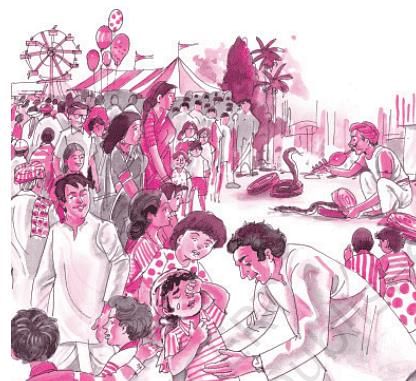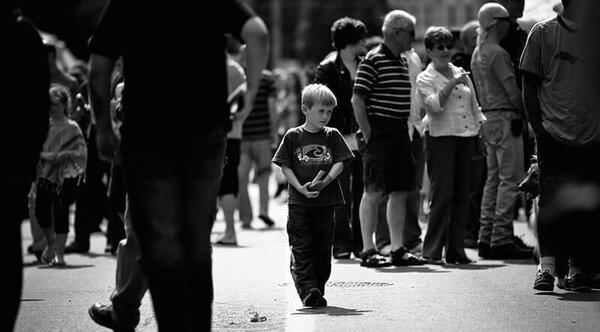|
What does the child's experience at the fair reveal about the nature of childhood innocence? |
Card: 1 / 36 |
|
The child's experience illustrates that despite being tempted by material desires like sweets and toys, his innocence and emotional bond with his parents remain paramount, highlighting the purity of childhood. |
Card: 2 / 36 |
|
Fill in the blank: The child’s overwhelming fear arises when he becomes separated from his ___ in the fair. |
Card: 3 / 36 |
|
True or False: The child accepts the stranger's offers of toys and sweets when he is lost in the fair. |
Card: 5 / 36 |
|
False; the child rejects all offers because his primary desire is to reunite with his parents. |
Card: 6 / 36 |
|
The story emphasizes that the emotional bond and security provided by parents are more valuable than any material possessions, as shown by the child's deep longing for his parents over the distractions offered by strangers.  |
Card: 8 / 36 |
|
The boy experiences a mix of excitement and disappointment as he is fascinated by the attractions but also feels sadness when he realizes he cannot have the toys and treats he desires. |
Card: 10 / 36 |
|
Fill in the blank: The boy chases ___ in the mustard fields, reflecting the joys of spring. |
Card: 11 / 36 |
|
True or False: The boy's parents encourage him to buy whatever he wants at the fair. |
Card: 13 / 36 |
|
What does the mother's action signify when she points out the mustard fields to the boy? |
Card: 15 / 36 |
|
The mother's action signifies her attempt to distract the boy from his disappointment and redirect his attention to the beauty of nature. |
Card: 16 / 36 |
|
What is the turning point in the story that leads to the boy's feelings of fear and panic? |
Card: 17 / 36 |
|
The turning point occurs when the boy realizes that he has lost his parents in the crowd, leading him to feel confused and terrified.  |
Card: 18 / 36 |
 Unlock all Flashcards with EduRev Infinity Plan Starting from @ ₹99 only
|
|
Fill in the blank: The boy notices a sweetmeat-seller offering ___, which he desires but knows he cannot have. |
Card: 19 / 36 |
|
How does the boy's understanding of his parents' disapproval affect his experience at the fair? |
Card: 21 / 36 |
|
The boy's understanding of his parents' disapproval makes him cautious and reserved, preventing him from expressing his desires for the various attractions at the fair. |
Card: 22 / 36 |
|
The boy prioritizes the comfort and presence of his parents over toys, sweets, and entertainment. |
Card: 24 / 36 |
|
True or False: The boy was initially interested in toys and sweets even after losing his parents. |
Card: 25 / 36 |
|
False. The boy loses interest in toys and sweets after realizing he is lost and just wants to find his parents. |
Card: 26 / 36 |
|
Short Answer: What is the significance of the stranger's attempts to console the boy? |
Card: 27 / 36 |
|
The stranger's attempts to console the boy illustrate the futility of material distractions when a child is in emotional distress, emphasizing that parental presence is irreplaceable. |
Card: 28 / 36 |
|
The child realizes the irreplaceable importance of his parents and yearns for their presence above all material desires. |
Card: 30 / 36 |
|
What powerful message does the story convey about children's feelings towards their parents? |
Card: 31 / 36 |
|
The story conveys the message that children have an unconditional love for their parents and that their presence provides a sense of safety and happiness that surpasses any material attraction. |
Card: 32 / 36 |




















